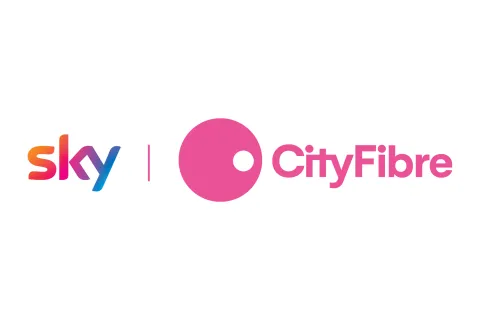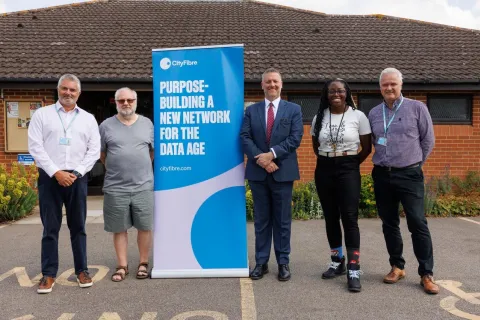Contract Won
In June 2011, the Trust successfully won the contract to provide a new Musculoskeletal Clinical Assessment, Triage and Treatment Service (MSK CATTS), which includes musculoskeletal physiotherapy outpatient clinics and Extended Scope Practitioner (ESP) Clinics. As part of this contract, a portion of the new MSK CATTS service had to be provided from community-based locations. The Trust identified Clifton Park Clinic (the Chapel) at Clifton, around 3.5km from the main hospital site, as the most appropriate site to deliver the new ESP clinics which are an important element of the MSK CATTS service. The site was leased from a private company and unlike York Hospital, was not connected to the City of York Council’s dark fibre ring, originally installed by CityFibre.
Adrian Shakeshaft, network manager for York NHSFT added: “We successfully manage over 100 sites on the existing network on behalf of both the Trust and PCT. As the Chapel site is going to be used to offer the new community-based service, we had to ensure that it was connected to the existing network.”
The new ESP clinics at the Chapel site offers ‘one stop’ clinics for adults experiencing musculoskeletal problems who do not require surgical intervention. It offers full assessment by a clinician, x-ray and review and also the production of a management plan – all in one visit. Patients can either be referred to the service by their GP, healthcare professional or by self-referral. Shakeshaft added: “The service will also offer x-ray, MRI scans, ultrasound and blood tests services that would need to communicate with other hospital sites, so it was clear that we needed a fast, reliable link to send all this data.”
Tight Timescales
Pinacl Solutions and its network infrastructure partner CityFibre were chosen following a personal recommendation from Roy Grant, head of ICT at City of York Council, following the successful implementation of its dark fibre network. A dark fibre point to point connection was required to link the Chapel site to the rest of the network. The new MSK CATTS service was awarded to the Trust in June 2011, with a launch date of September 2011. This gave a three month period to complete the implementation plan.
Shakeshaft explained: “The three month timescale for the project was tight with the whole service needing to be up and running by September. I knew that other network providers and operators would need around five to six months to deliver a project of this scale and from the time I placed the order with Pinacl, we had about 10 weeks to complete the whole project".
“CityFibre and Pinacl were confident that they could deliver the project within the timescales and I was confident in their ability, following the recommendation from the council.”
Proactive, professional service CityFibre conducted the survey for the project in early August. According to the survey, the fibre cable needed to pass through private land and therefore the landowner’s permission would be required, as would approval from York Highways in order to complete the necessary road digs.
Shakeshaft continued: “CityFibre was really proactive and professional and really made the project happen. CityFibre even worked through the summer bank holiday weekend to ensure that we met our tight deadlines and delivered on our promises.”
Future proofed solution The new fibre optic connection links directly with City of York Council’s dark fibre ring which spans the city. It has a 1Gbps port at either end meaning that network speeds can easily be increased by replacing the equipment, rather than the fibre connection between them.
Shakeshaft commented: “Our only other real alternative was a 100Mbps link from BT which was far slower, had higher rental costs and not as ‘future proofed’ as the CityFibre solution. The new connection is so fast and reliable; users actually report that the network seems faster at the Chapel site, than it is at the hospital’s main site! As a network manager, this is a refreshing change as I’m not used to getting this type of feedback.”
Benefits for Everyone
Most patients seen at the ESP clinics may no longer need to attend two separate appointments as the whole process from initial assessment to the development of a management plan can now be completed in one location and under an hour.
Melanie Liley, directorate manager for therapies and trauma and orthopaedics at York NHSFT explained: “The majority of the ESP clinics are delivered from the Chapel site, so it’s clear that we needed full connectivity to other Trust sites to share large amounts of data. Without this connection, we would not be able to deliver this service from this community-based site and therefore would not have even been able to bid for the initial contract – this connection was crucial to the new service.
“The new service benefits everyone – it delivers real, tangible savings for the health economy, not to mention the benefits to patients in terms of quality service provision, cost and time.” Previously, patients had to attend appointments at various hospital locations which may have required them to attend on more than one occasion. These appointments may have been spread over a typical duration of around one to two weeks. As the new service only involves a single one-hour appointment for the patient and is now based within the community, patient visits, time and expense are all significantly reduced.
“Our patients love the new service. The overall patient experience is a key value of the Trust and the feedback we have received so far suggests that it has been really well received.“The commissioner will also benefit from the lower cost of this service,” according to Liley. “We now operate the MSK CATTS service at a lower tariff than when it was previously delivered and because the new service may only require one appointment, the commissioner is not charged for two separate appointments, meaning further cost savings.”The new connection also improves communication between the ESPs and the consultants, allowing the instant collaboration and analysis of patient scans and data all on the same system.
Liley concluded: “The new service brings the Trust in line with early implementers of musculoskeletal services across the UK and also allows us to deliver some additional orthopaedic outpatient services from the same location, providing further benefits to our patients.“The new high-speed connection to the Chapel site has made all this possible. It is integral to the successful delivery of the service and without it we would have had to source an alternative community based location for the ESP clinics. If this had proved difficult, we may not have been able to tender for the contract.”.



